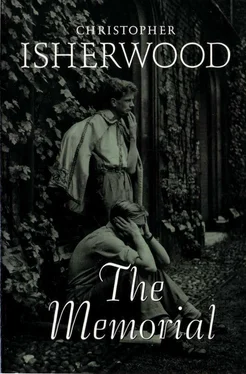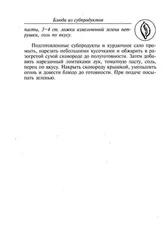Balefanio - tmp0
Здесь есть возможность читать онлайн «Balefanio - tmp0» весь текст электронной книги совершенно бесплатно (целиком полную версию без сокращений). В некоторых случаях можно слушать аудио, скачать через торрент в формате fb2 и присутствует краткое содержание. Жанр: Старинная литература, на английском языке. Описание произведения, (предисловие) а так же отзывы посетителей доступны на портале библиотеки ЛибКат.
- Название:tmp0
- Автор:
- Жанр:
- Год:неизвестен
- ISBN:нет данных
- Рейтинг книги:4 / 5. Голосов: 1
-
Избранное:Добавить в избранное
- Отзывы:
-
Ваша оценка:
- 80
- 1
- 2
- 3
- 4
- 5
tmp0: краткое содержание, описание и аннотация
Предлагаем к чтению аннотацию, описание, краткое содержание или предисловие (зависит от того, что написал сам автор книги «tmp0»). Если вы не нашли необходимую информацию о книге — напишите в комментариях, мы постараемся отыскать её.
tmp0 — читать онлайн бесплатно полную книгу (весь текст) целиком
Ниже представлен текст книги, разбитый по страницам. Система сохранения места последней прочитанной страницы, позволяет с удобством читать онлайн бесплатно книгу «tmp0», без необходимости каждый раз заново искать на чём Вы остановились. Поставьте закладку, и сможете в любой момент перейти на страницу, на которой закончили чтение.
Интервал:
Закладка:
"I wonder," said Edward, "if my memory deceives me!"
He walked over to the porter's chair and lifted the padded seat.
"Do you remember," he asked Mary, "the day you first showed me that?"
"Nonsense, my lad. You found it for yourself. I was an exceptionally modest girl."
Maurice had never seen the chair before. He was delighted. He jostled Edward, for they were both trying to sit down at once. Pamela looked slightly shocked. Margaret said conversationally to Earle:
"It's rather touching to think of the poor dear never leaving his post."
"Who?" asked Earle, quite at sea as to what was going on—admiring the pictures.
Maurice was shouting that the cistern was empty. Tommy had begun to laugh in spite of himself, keeping an eye on Anne, hoping she didn't mind. So Anne laughed. And really it was quite funny until Georges made the whole thing heavy and French by roaring out:
"Ca ne marche pas?"
"Do you think we might wash a bit?" said Mary to Tommy.
He was all responsibility in a moment.
"Yes, of course; I'm sorry. I'll go and see if I can get you some hot water."
At length breakfast was announced ready. The smoking-room looked very bare. There were three new small tables covered with American cloth. People had been given teas here in the days when the Hall was open to trippers.
Edward asked Mrs. Compstall:
"Has the Squire been over lately?"
She was plainly puzzled. He had to explain:
"I mean Mr. Ramsbotham."
That was really rather unkind, thought Mary, especially in front of Tommy. Edward could be malicious when he liked. Poor old Ram's B. The second Mrs. Ram would do all the squiring for him.
Mrs. Compstall said yes, Mr. Ramsbotham had been over. Mrs. Ramsbotham was somewhere
in the South, he'd said, visiting. Of course, Mr. Ramsbotham was always so busy at the mill.
"She's gone to see her people," explained Tommy, rather stiffly. Anne had noticed that he avoided mentioning his stepmother as much as possible. Though he never uttered a word against her. Bitch that she is, thought Anne, with sudden fierceness, remembering how Mrs. Ramsbotham patronised Tommy. Always so gracious, always assuming that he knew absolutely nothing about anything—had no education; always stopping to explain when she talked of county families or restaurants, or art, or places abroad. The way she pronounced Italian names or quoted French made one really in love with the Lancashire accent. Anne had once, after a lunch with Mrs. Ram, suddenly kissed Tommy because he'd made grass rhyme with Bass. How good he suddenly seemed. How honest. How pure in heart.
"It's a pity," said Maurice suddenly, "that Eric isn't here."
It seemed strange that they hadn't remembered him before.
"I suppose," said Margaret, "he's busier than ever nowadays."
"Edward's the only one who sees him," said Mary.
Pamela wanted to know who Eric was and what he did.
"I think that's perfectly ripping," she said,
when Mary had explained. She turned to Edward: "And you've been helping him?"
"Only for the last month. With the Boys' Club."
"It must be fearfully interesting."
"If you like that sort of thing," said Edward; and catching Margaret's eye, he grinned.
"It's the first honest work Edward's ever done in his life," said Maurice.
"We all know what a toiler you are, my lad," said Mary.
Maurice made his injured-innocence face:
"Me? I bet you wouldn't like to swap jobs— snoring away all day at your Gallery."
"But how exactly does one sell cars?" asked Pamela.
"Well------" Maurice loved being asked this.
He drew up his elbows on the table, began: "Last Wednesday, for instance . . ." He was really very funny describing how he'd persuaded a rich Nonconformist boot-manufacturer to buy a rather wonky, but handsome-looking, second-hand saloon. And this, thought Anne, was really the story of how he'd always wangled everything out of everybody—out of Mother, out of tradesmen, out of his masters at school. Anne felt a sudden violent pang of love for her brother. There he was, so artful and unprotected and innocent. An artful little boy.
"But surely, Maurice," she asked, "he won't be
very pleased when he finds out what this car's really like?"
"Of course he won't," said Maurice. "Then I shall sell him a new one."
They all laughed, feeling brighter now that the hot coffee was inside them. Out in the garden it was broad daylight. And Mary, looking at the party as they sat round the table, thought suddenly of Father. I wonder if he can see us now, she thought. I hope so.
"You must love this place, Mrs. Scriven," said Pamela, still a little formal with Mary, whom she'd only met once before last night. Georges made a pun. Earle wanted to know the date of the panelling. Nobody could tell him. Maurice suggested that they should go round the house.
They went upstairs. Edward led the way. He'd forgotten nothing.
"Look, Mary," he said, "they've moved that little table that used to stand in the corner."
"So they have," said Mary absently.
She was thinking: How extraordinary that real live people have lived here. For now the house was quite dead. It had died of neglect. It was a show place, like all the others. Mrs. Ramsbotham would probably not bring it back to life. She would like it better dead. She would have garden-parties here and house-parties from the South. She was a climber. Ram's B. would be kept out of the way. He would be an outcast, spending most of his
time at the Midland or at his old home with Tommy and Anne. Anne, at any rate, would look after him and put him up when he was too tight to come out to Chapel Bridge. And Mrs. Ramsbotham, with her elegant jokes, would excuse her husband's absence and spend his money. Well, well, thought Mary, it's none of my business.
She questioned Tommy about the alterations they were going to make, and Tommy rather apologetically explained that they were putting in another bathroom, building a garage in the barn, making a hard tennis court. The work would start as soon as Christmas was over.
"Of course," he added, still apologising, "nothing will really be altered—on the outside, I mean."
"I'm sure it'll be a great improvement," she reassured him.
He brightened.
"I'm glad you think so. Of course, we're going to keep everything just the same."
"I guess it must be a tremendous responsibility to own a place like this," said Earle, who was being much impressed.
Edward opened the folding-doors into the drawing-room. The room was nearly dark, for the shutters had been closed. Only one light lit in the chandelier. Edward walked across to the big mirror, regarded himself for a moment, then
raised one arm above his head like a Fascist and exclaimed:
"Salut!"
"Whatever did you do that for?" asked Pamela.
Edward glanced at her with his quick impudent; smile. He said:
"I'm certain we could produce ectoplasm here."
"What's ectoplasm?"
"It's white. Rather like sago pudding. It usually forms downwards."
Quite seriously, so that they couldn't be sure if he were joking or not, he described a series of experiments with an Austrian medium. He seemed to have read a great deal on the subject. Pamela was thrilled.
"I do think this house is weird. One could quite imagine seeing a ghost here."
They wandered to the window to admire the view. Mrs. Compstall came in, having fetched her husband, who was obviously just out of bed. He repeated that if only they'd known Mr. Thomas was coming, etc., etc. He lingered for a few minutes and then disappeared, evidently feeling that he'd done his duty.
Mary suggested that they should go out into the garden. She had a feeling that she didn't like being in the house. It was old, nasty, suffocating. She hoped that Anne and Tommy wouldn't come to feel the same about it.
Читать дальшеИнтервал:
Закладка:
Похожие книги на «tmp0»
Представляем Вашему вниманию похожие книги на «tmp0» списком для выбора. Мы отобрали схожую по названию и смыслу литературу в надежде предоставить читателям больше вариантов отыскать новые, интересные, ещё непрочитанные произведения.
Обсуждение, отзывы о книге «tmp0» и просто собственные мнения читателей. Оставьте ваши комментарии, напишите, что Вы думаете о произведении, его смысле или главных героях. Укажите что конкретно понравилось, а что нет, и почему Вы так считаете.





